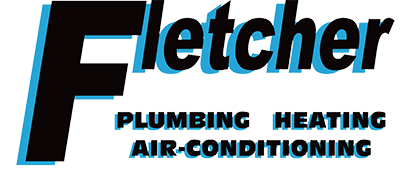
We spend lots of time inside. As a matter of fact, the Environmental Protection Agency (EPA) has determined being within a building makes up 90% of our schedule. Having said that, the EPA also says your indoor air can be three to five times dirtier than outdoors.
That’s due to the fact our homes are securely sealed to enhance energy efficiency. While this is fantastic for your utility expenses, it’s not so good if you’re a part of the 40% of the population with respiratory allergies.
When outdoor ventilation is insufficient, pollutants like dust and volatile organic compounds (VOCs) might get stuck. As a consequence, these pollutants could aggravate your allergies.
You can enhance your indoor air quality with clean air and usual cleaning and vacuuming. But if you’re still having problems with symptoms while you’re at home, an air purifier may be able to help.
While it can’t get rid of pollutants that have gotten trapped in your furniture or carpet, it can help purify the air circulating across your home.
And air purification has also been scientifically proven to help lessen some allergic symptoms, according to the American College of Allergy, Asthma and Immunology. It may also be useful if you or someone in your household has lung issues, like emphysema or COPD.
There are two models, a portable air purifier or a whole-home air purifier. We’ll discuss the differences so you can determine what’s correct for your house.
Whole-House Air Purifier vs. Portable Air Purifiers
A portable air purifier is for one room. A whole-house air purifier works with your home comfort equipment to treat your complete home. Some kinds can clean by themselves when your home comfort system isn’t on.
What’s the Best Air Purifier for Allergies?
Look for a model with a High Efficiency Particulate Air (HEPA) filter. HEPA filters are placed in hospitals and offer the greatest filtration you can find, as they eliminate 99.97% of particles in the air.
HEPA filters are even more useful when combined with an ultraviolet (UV) germicidal light. This mighty mixture can wipe out dust, dander, pollen and mold, all of which are common allergens. For the best in air purification, think over equipment that also has a carbon-based filter to decrease household vapors.
Avoid using an air purifier that creates ozone, which is the primary element in smog. The EPA warns ozone could worsen respiratory problems, even when emitted at small amounts.
The Allergy and Asthma Foundation of America has created a listing of questions to consider when buying an air purifier.
- What can this purifier take out from the air? What doesn’t it take out?
- What’s its clean air delivery rate? (A bigger amount means air will be freshened more quickly.)
- How often does the filter or UV bulb need to be changed]? Can I finish that without help?
- How much do replacement filters or bulbs cost?
How to Decrease Seasonal Allergy Symptoms
Want to receive the {top|most excellent|best] outcome from your new air purification unit? The Mayo Clinic recommends taking other measures to decrease your exposure to seasonal allergy triggers.
- Stay in your home and keep windows and doors sealed when pollen counts are high.
- Have other family members mow the lawn or pull weeds, since this work can irritate symptoms. If you must do these jobs yourself, you might want to consider wearing a pollen mask. You should also rinse off immediately and change your clothes once you’re finished.
- Avoid stringing up laundry outdoors.
- Turn on your air conditioner while indoors or while in the car. Consider adding a high efficiency air filter in your residence’s HVAC system.
- Equalize your house’s humidity percentage with a whole-house dehumidifier.
- Hardwood, tile or linoleum are the ideal flooring materials for reducing indoor allergens. If your residence has carpet, use a HEPA filter on your vacuum cleaner.
Let Our Pros Handle Your Indoor Air Quality Necessities
Ready to progress with installing a whole-house air purifier? Give our specialists a call at 302-653-0503 or contact us online to request an appointment. We’ll help you find the right equipment for your residence and budget.
